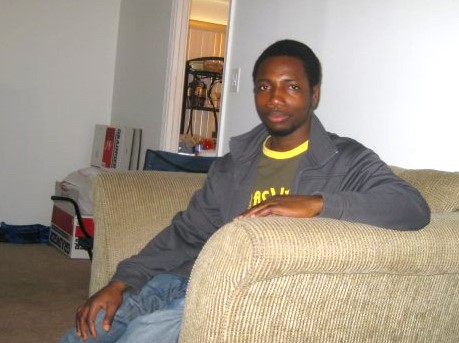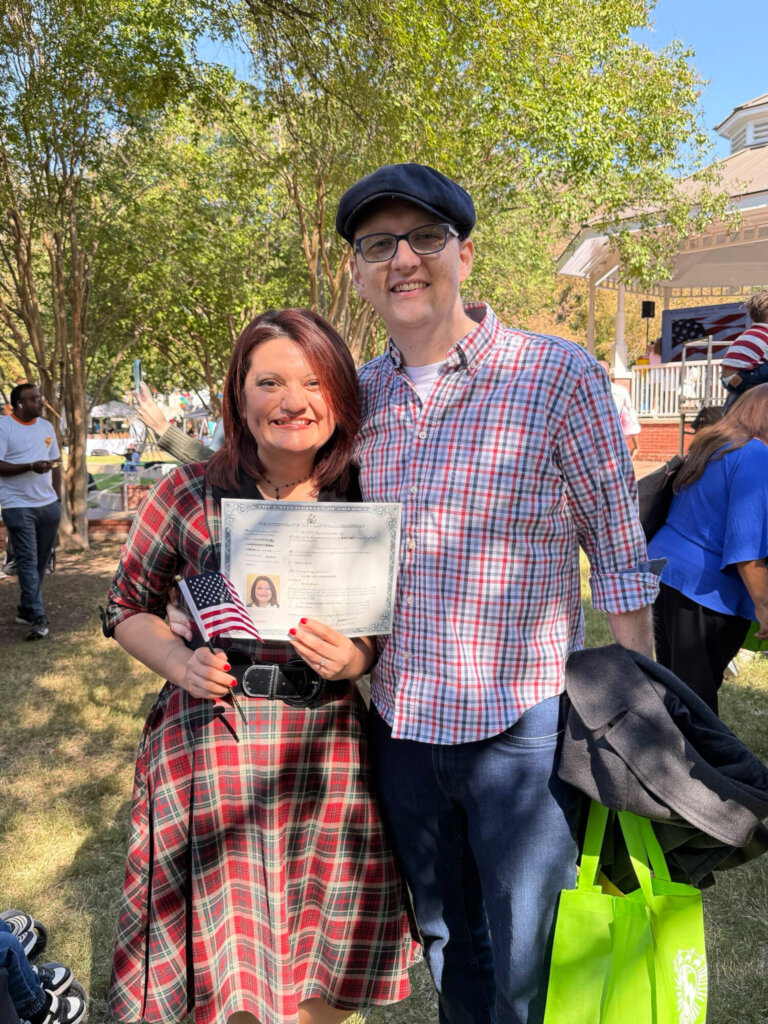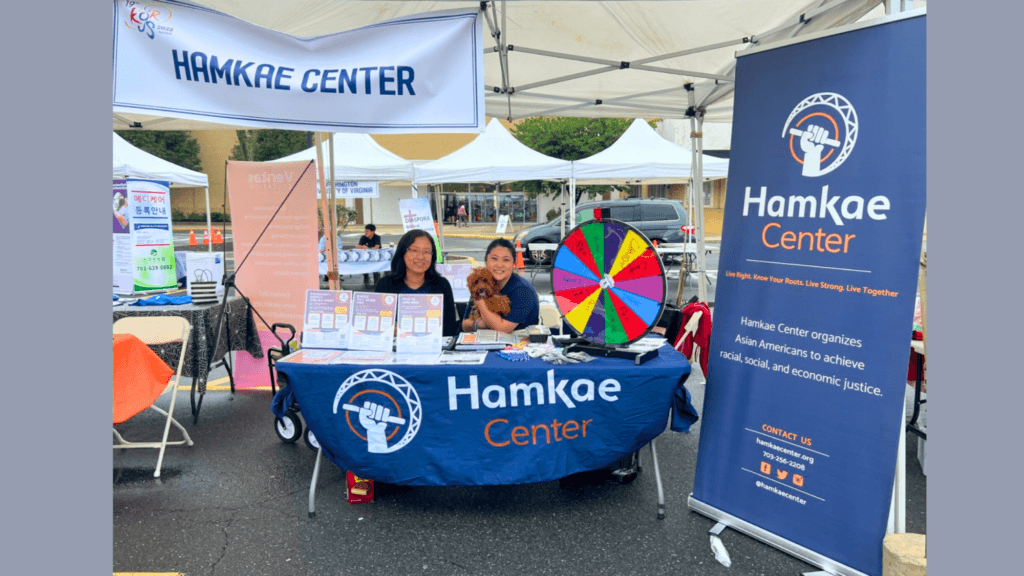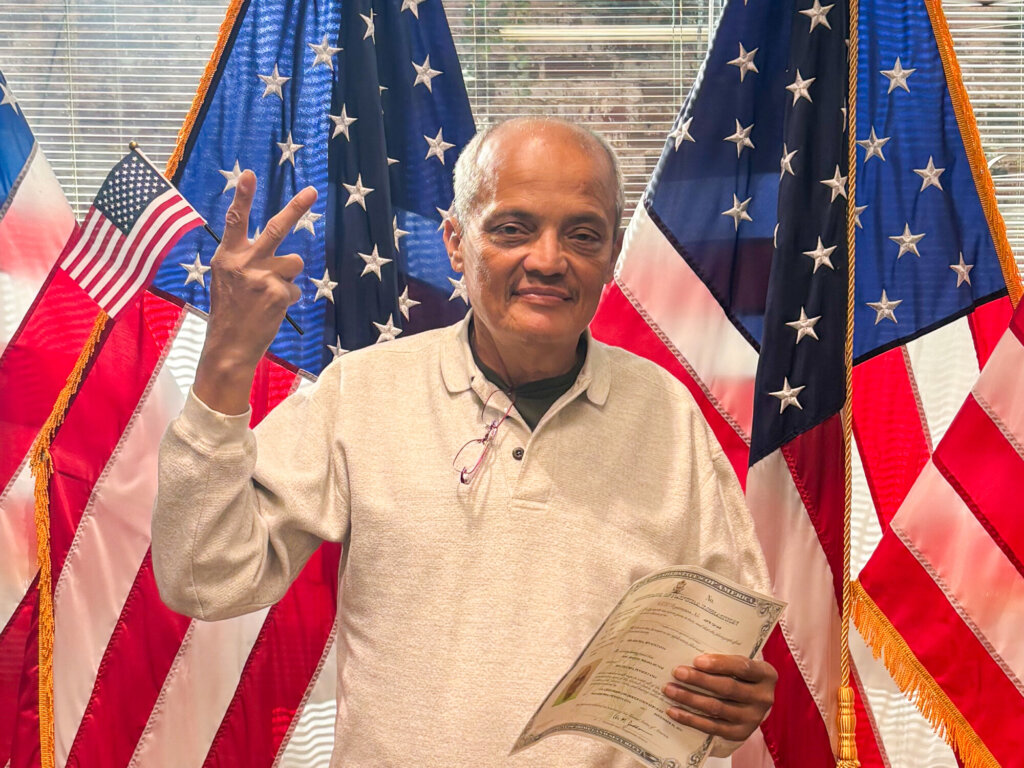Abiodun Freeman: I decided to become a citizen. So I googled “citizenship.”

Explore more
I’m from Sierra Leone, West Africa. I came to the United States on October
22, 2008. My dad actually brought me here. He worked for the U. S. embassy in
Freetown as the ambassador’s driver for more than 15 years, and the embassy
helped him get a visa to come to the United States. I was 18 going on 19 when
my brother and I joined my father in New Jersey. But the rest of the family is
still back in Sierra Leone—my mom and my four other siblings who are still in
school there.
My country was at war for 10 years. When you are surrounded by war, you
develop a lot of life skills, survival skills that enable you to adapt to a new
environment. When my dad brought me to the U.S. it was an opportunity; I wanted
to use it well. I thought, “I can’t let him down.” Growing up in Africa,
character is everything—character is everything. So I always want to make sure
that I protect my good character, my upbringing, and that I don’t let my family
down. It’s a cultural thing, whatever action you take, whatever reputation comes
from it, whether it’s a good name or a bad name, people are going to link it to
your family, “He’s part of this family, that’s his dad, that’s his mom.” That’s
how we were brought up—to think before you act because it’s going to affect
everyone.
In New Jersey I got an internship in a recording studio and I became a CNA
(Certified Nursing Assistant) and worked in a nursing home, because I like
helping people. There are so many resources in the U.S., so many opportunities.
Who you want to become is a personal choice. So I decided to go to school as
well. I moved to California in 2011 because I wanted to study film and
television production and music.
After I moved to California, I decided to become a citizen. So I googled “citizenship,” and the CET
(Center for Employment Training) came up; that’s how I found it. It was ten minutes away from my apartment. At that point, I had been just over four years in America, and I was told by people at CET that I had to come back in six months because technically you have to be here four years and nine months, to apply for U.S. citizenship. But then I had to put citizenship on hold, because it was expensive and my priority was to pay my bills. I lived in San Jose and every six months they raised the rent on my apartment. But after nearly ten years here, my green card was getting close to its expiration. I was working at the Cathedral of Faith Church in San Jose as a camera operator and video editor, and I had a full-time job working with disabled clients during the day. I decided I didn’t want to pay to renew my green card when, for a couple of hundred dollars more, I could apply for citizenship. Finally, last year in March, I said, “I’m just going to do it. I’m going to apply for citizenship.”
I went back to CET where they tell you all the documents you are supposed
to bring. Then they set up the appointment and you show up and the
documentation starts right away. It was simple and straightforward. They’re not
wasting anybody’s time—your time, their time—they’ve been doing this for a long
time and they know their stuff. I applied and I paid the fee. I didn’t qualify
for a fee waiver, because of my income. Raquel Brown, who works for the CET
Immigration and Citizenship Program, is very amazing. She was very
professional; she knows what she’s doing; I trusted her. She did a good job
doing all the paperwork for me to become a citizen, and then following up with
all the material that I needed along the way.
(Photo courtesy of Abiodun Freeman)
Last October I moved a four-and-a-half hour drive away from San Jose to
Redding, California. I changed my mailing address and I’d been waiting for my
letter about the oath ceremony, but I didn’t get it at my new house. I called
Raquel and she said, “You know, you should probably check your old address
because it should have been here by now.” On the 21st of October, I got a call
around 5:00 p.m. from my old roommate who said, “You have a letter over here.”
I was studying and I said, “I need you to open the letter for me. Please open
the letter and let me know the date of the ceremony.” I didn’t want her to mail
it to me and take the risk of missing the date. So she opened the letter and
told me that the ceremony was scheduled for the next day, October 22 at 10:00
a.m.
I packed up my laptop, went home to get ready, and booked an Airbnb in San
Jose for the night. Then I just drove all the way. I got to San Jose at 11 p.m.
at night, and drove by my old apartment to pick up the letter because I had to
take it to the ceremony. I checked into my Airbnb and in the morning I dressed
nicely and went to the ceremony. It was October 22—the same day that I came to
the United States—exactly 11 years later. I got my citizenship on the same day!
Taking the oath, it was the best feeling in the world. I was in a group of five or six hundred at the Campbell Heritage Theatre. There were a lot of people in that place. In my group I was the only one from Sierra Leone. It was a beautiful scene to see how much people valued America. It was a beautiful feeling. We want to be a part of this country. You know? That’s the feeling I was having there. It wasn’t like I was just standing there by myself. You have people from all different places and now that we’re American we become one nation. One family. I called to thank Raquel, but I’m going to take time off one day and go back to San Jose to say thank you in person.
It’s the full package handed over to me. I know I have to work for it; I’ve
got to value it. For you to be a part of a country, it’s not just being a
member of a country it’s about the value you bring to that country. I’ve been
in the United States 11 years and I want to continue with my mission, my
schooling, and my work. I’ve been working with the disabled population and I enjoy
doing it. I just started a new job working with disabled clients. I help them
with their activities of daily living. I teach life skills, job skills, give
them tools to be independent. I teach
them community integration, money management, and all that. I enjoy doing it.
One day I hope to open my own day program for the disabled.
I’ve been thinking of going back to Sierra Leone to visit. It will be
really different. I’m proud of being a United States citizen. I have been given
the right to vote, which is very appreciated. But it’s still me; I’m still
doing the same work that I was doing. I’m trying to get better every day at
whatever I’m doing. You have to treat citizenship with respect and dignity.
It’s the best decision one could make to become a U.S. citizen.
I voted for the first time in the March 2020 primary. It was an amazing
experience. I forgot to register, but I googled to see if I could still
register on the same day, because I wanted to vote and I learned that in
California I could. I went to the voting place and filled out a form. I told
them I just became a citizen and it was my first time voting. They gave me the
information I needed, and a flag, and at least 12 “I voted” stickers. They were
all very happy and welcoming to a brand-new citizen.



